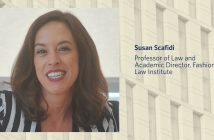Professor Olivier Sylvain shared his expert opinion on the Protecting Americans from Dangerous Algorithms Act and how it will hold social media accountable.
Congressman Tom Malinowski (NJ-7) and Congresswoman Anna G. Eshoo (CA-18) reintroduced the Protecting Americans from Dangerous Algorithms Act, legislation to hold large social media platforms accountable for their algorithmic amplification of harmful, radicalizing content that leads to offline violence.They were joined by Representatives Sean Casten, Jason Crow, Suzan DelBene, Mark DeSaulnier, Ted Deutch, Sara Jacobs, Barbara Lee, Joe Neguse, Dean Phillips, Haley Stevens, Debbie Wasserman Schultz, and Peter Welch as cosponsors.The bill narrowly amends Section 230 of the Communications Decency Act to remove liability immunity for a platform if its algorithm is used to amplify or recommend content directly relevant to a case involving interference with civil rights (42 U.S.C. 1985); neglect to prevent interference with civil rights (42 U.S.C. 1986); and in cases involving acts of international terrorism (18 U.S.C. 2333).…“The Malinowski-Eshoo bill is for our times. Twenty-five years ago, the drafters of Section 230 created the safe harbor to promote self-regulation and innovation by online publishers of user-generated content like electronic bulletin boards. But the world has changed dramatically since then. The most popular intermediaries are far from simple publishers or distributors of user-generated content. Today, they assertively design almost all aspects of their consumers’ online experiences; they make recommendations and deliver deeply engaging news stories, videos, and advertisements to jealously hold their users’ attention. Nor have these companies done enough to regulate themselves or the content that reaches consumers. They tinker with and refine their algorithms, even as they know that the content is sometimes discriminatory, harmful, misleading, fraudulent, or deeply divisive. For the past twenty-five years, under the prevailing Section 230 doctrine, victims could never get a hearing in court on whether these companies’ algorithmic systems facilitate or generate unlawful conduct online. The Malinowski-Eshoo bill directly redresses this problem by removing the safe harbor for companies that use algorithms in ways that deliver or otherwise amplify potentially unlawful content by design. In this way, it will help make powerful intermediaries accountable and finally incentivize them to abide by law.”—Olivier Sylvain, Professor at Fordham Law School and Director of the McGannon Center.



